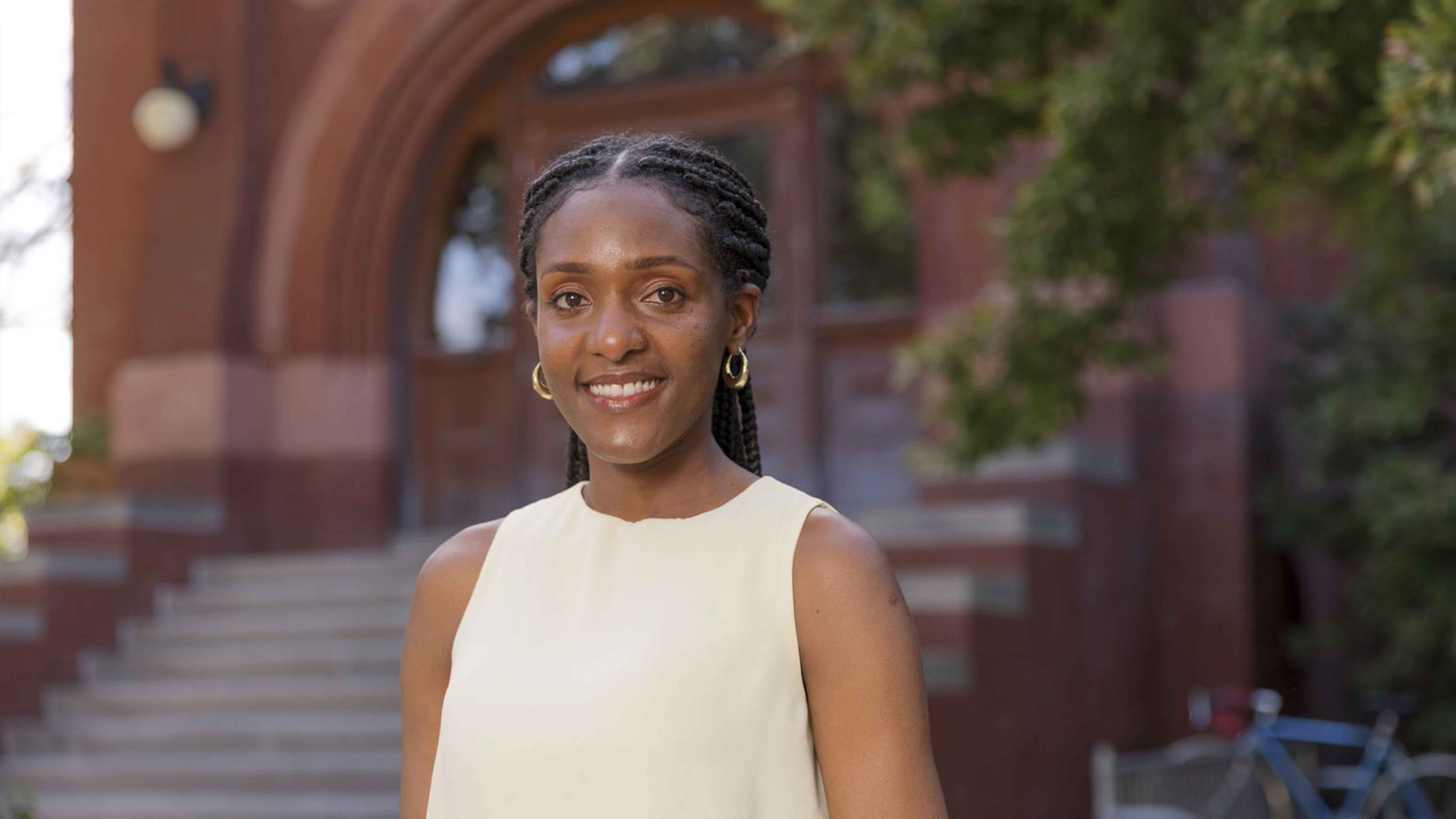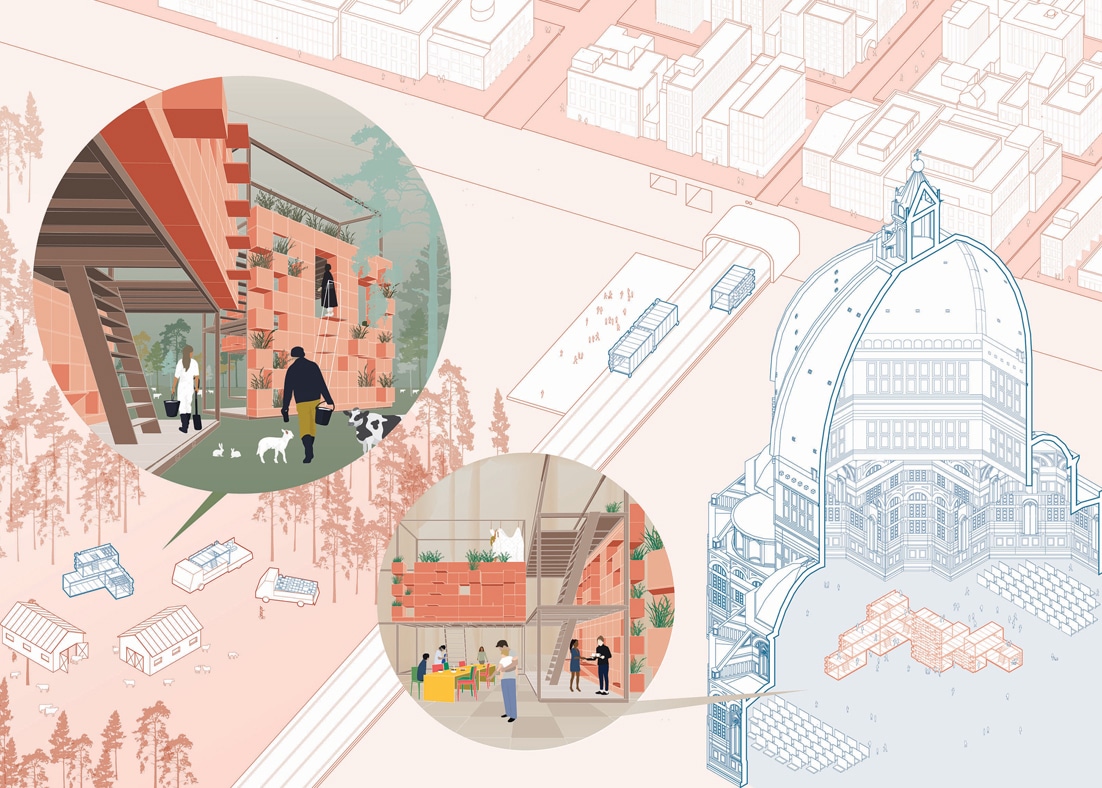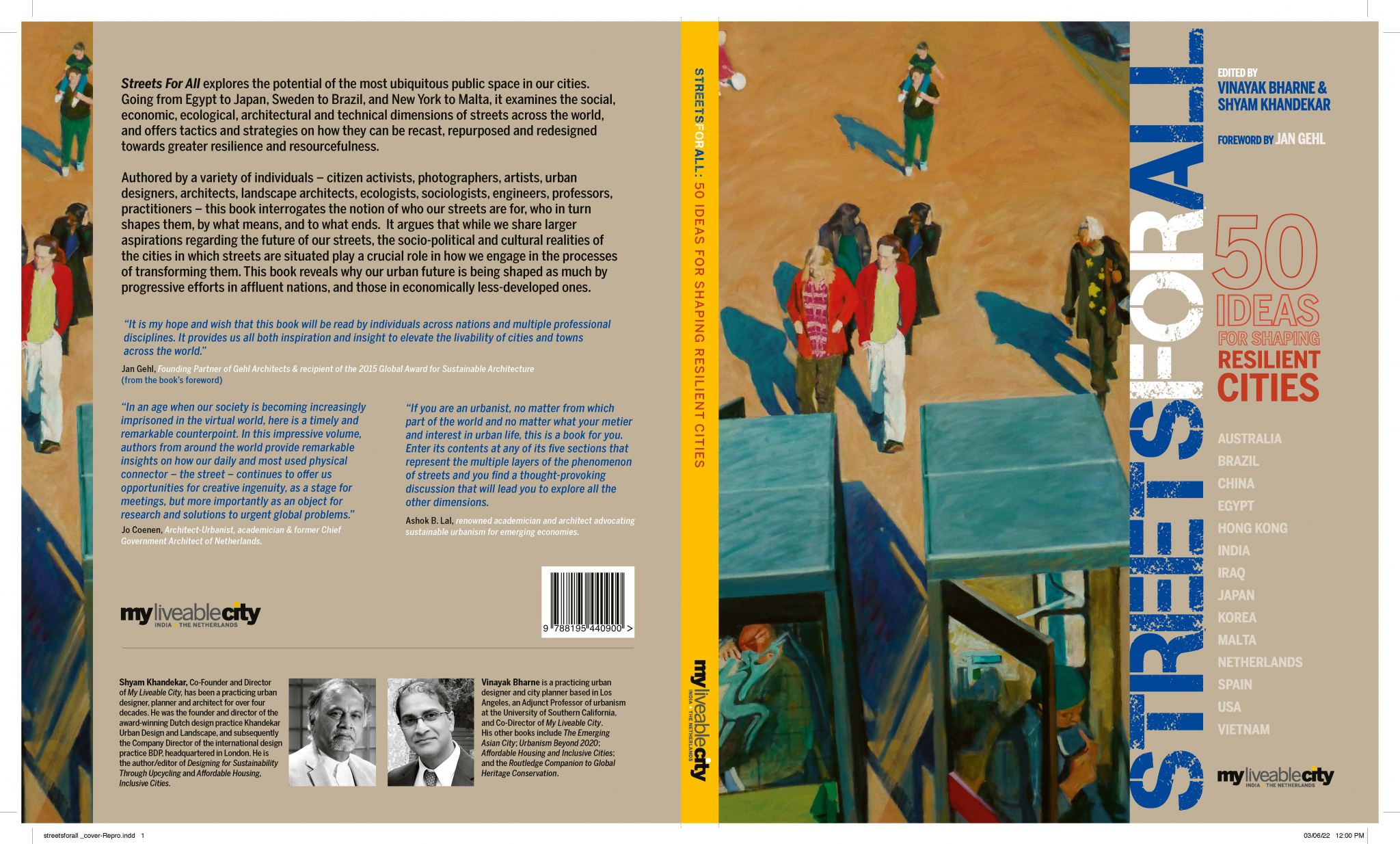DOE-funded project investigates climate change effects on low-income housing
UNIVERSITY PARK, Pa. — Coastal cities such as Baltimore expect to see increased impacts of climate change, such as severe flooding, heat stress and increased energy consumption, particularly in low-income communities. Researchers from Penn State’s Hamer Center for Community Design are part of a Department of Energy (DOE)-funded effort to study the effects of climate change on the built environment and how American cities can equitably mitigate these events.
The Hamer Center for Community Design, which is housed in the College of Arts and Architecture’s Stuckeman School, serves as a laboratory for community partnerships that integrate socio-economic and environmental conscious resolution to design and planning problems. Co-principal investigators on the project are Rahman Azari, associate professor of architecture and director of the Resource and Energy Efficiency (RE2) Lab, Lisa Iulo, associate professor of architecture and director of the Hamer Center for Community Design, and Hong Wu, associate professor of landscape architecture and director of the Stormwater Living Lab.
“Ken Davis, the principal investigator, learned about this potential DOE opportunity before the actual request for proposals was issued, and he immediately brought it to the Water Council,” said Wu, who was co-chair of the council with Davis, professor of atmospheric and climate science. “We then put a call to action out to faculty that we thought may be a good fit, and Ken highlighted that the expertise that we have in the Stuckeman School, particularly with the built environment, was something unique Penn State could bring to the table.”
That expertise is being provided by Azari, who will co-lead the buildings and energy sub-team of researchers on the project; Iulo, who will co-lead the community engagement cross-cutting priority area team; and Wu, who will co-lead the decision science and equitable pathways sub-team.
Azari said the team was looking to understand the effects of climate change on architecture and, more specifically, its effect on low-income housing structures in Baltimore.
“We are interested in the complex interrelationships between climate change, indoor air quality, air quality in general and energy consumption of the buildings and how the design of such buildings could be a medium to reduce energy consumption, improve air quality and, ultimately, improve the health of the occupants living there,” he said.
Azari stressed the importance of developing a connection between the researchers on the project, who represent a number of different disciplines, the communities affected in Baltimore and also practitioners who need to take climate change into consideration when designing buildings.
“For me, I am interested in determining how climate change and future uncertainties affect the way we design buildings,” he explained. “How can we include the users of the buildings and the people who live there in the design process so we can see what works and what doesn’t work when it comes to climate change? We will use those answers to then create new models for how we think about design.”
Iulo explained that the Baltimore project is a natural progression of the work the Hamer Center has been doing in local flood-prone communities, such as Selinsgrove, Pennsylvania. Baltimore has approximately 52 miles of shoreline, which can rise dramatically during certain weather conditions.
“Baltimore is part of the Chesapeake Bay Watershed area, fed largely by the Susquehanna River Basin, and is representative of many communities that the Hamer Center has worked with, so we have a real opportunity here to further our impact with Baltimore.” she said. “Working with our other University partners, national laboratories and the U.S. Forest Service, we’re looking forward to engaging in Baltimore to involve communities in the process of exploring solutions to the climate change challenges they are facing.”
The pilot project in Selinsgrove looks to inform solutions throughout the Chesapeake Bay region, said Iulo.
“Being able to work in Baltimore, to work with Hong and other sub-teams on water quality and quantity issues, I think is very much aligned with the work we’ve been doing in the Hamer Center,” she said.
Wu brings expertise in the landscape architecture realm, particularly in integrating green infrastructure as solutions to urban climate resilience. Her current green stormwater infrastructure research focuses on investigating the environmental, social, and economic aspects of green stormwater infrastructure across different social and environmental contexts.
She will look at integrating community input into developing equitable climate mitigation and adaptation methods and test them under various future scenarios in the integrated modeling system that the large group will develop.
“I think the Stuckeman School faculty make unique contributions to this project in that we try to connect scientific research to real-world problem-solving,” she said. “The key role for us is to ask, ‘What are the effective traditional and novel solutions that the communities desire for enhancing climate resilience in Baltimore and how do we test those solutions in our modeling and assess how well they work?”
The goal of the Penn State team is to both provide a model for community-oriented, interdisciplinary urban science that promotes climate solutions, and to educate a new generation of urban scientists so they are capable of engaged-community planning in the face of climate change in urban areas across the United States.
Davis is leading the Penn State team that received $6.4 million for the project and includes 21 faculty members from seven different colleges and 12 different departments. They join counterparts from Johns Hopkins University, Morgan State University, University of Maryland Baltimore County, University of Virginia, Oak Ridge National Laboratory, The National Renewable Energy Laboratory, Drexel University, City University of New York and the U.S. Forest Service in studying effects of climate change on the city of Baltimore.

 Study Architecture
Study Architecture  ProPEL
ProPEL 





